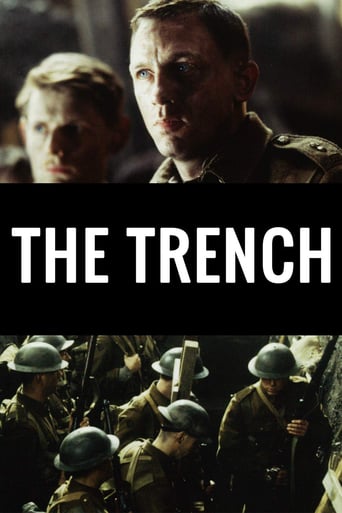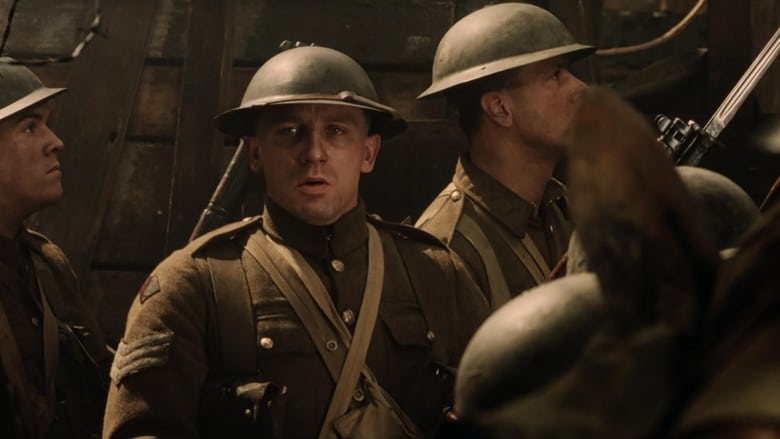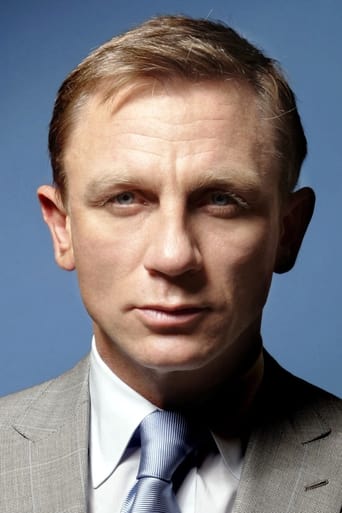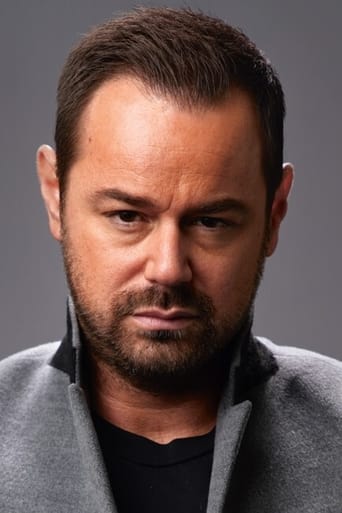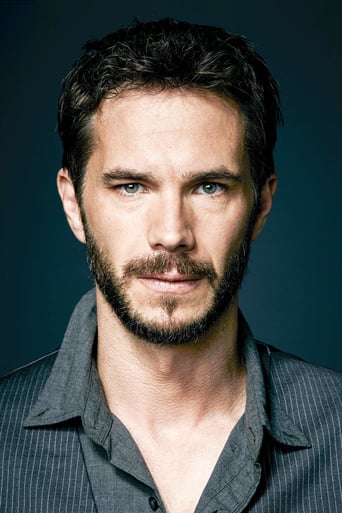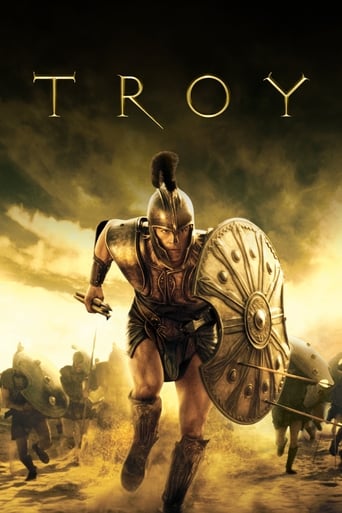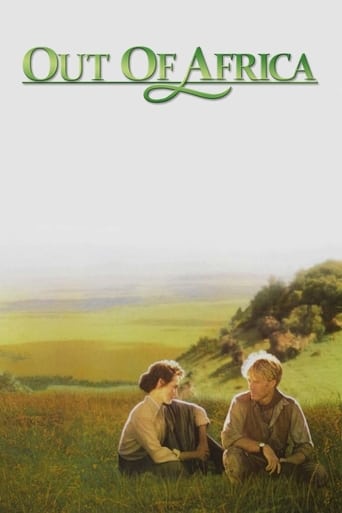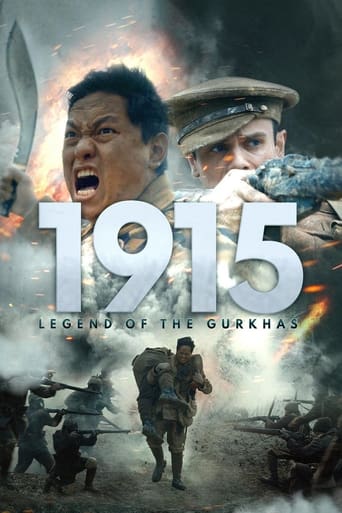The Trench (1999)
The Trench tells the story of a group of young British soldiers on the eve of the Battle of the Somme in the summer of 1916, the worst defeat in British military history. Against this ill-fated backdrop, the movie depicts the soldiers' experience as a mixture of boredom, fear, panic, and restlessness, confined to a trench on the front lines.
Watch Trailer
Cast
Similar titles
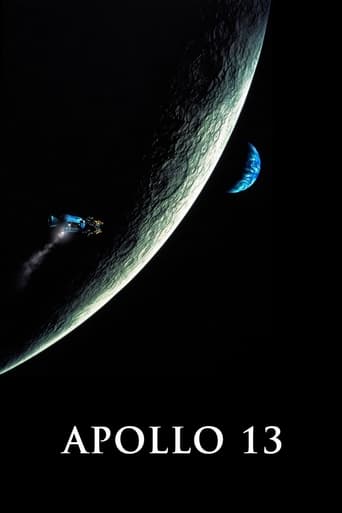
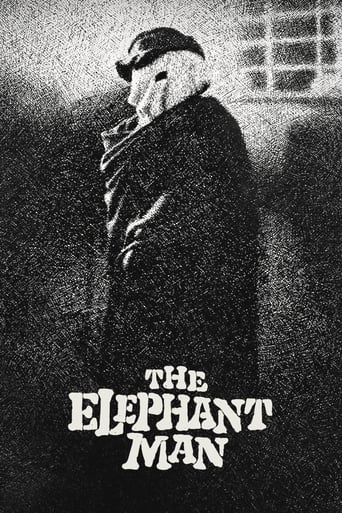
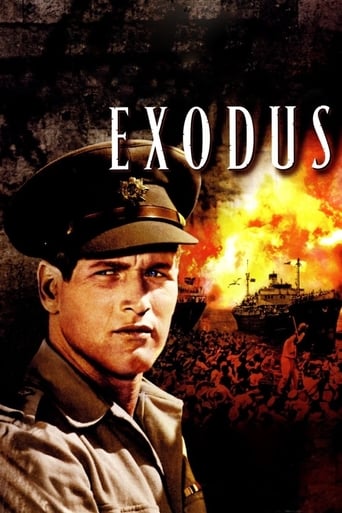
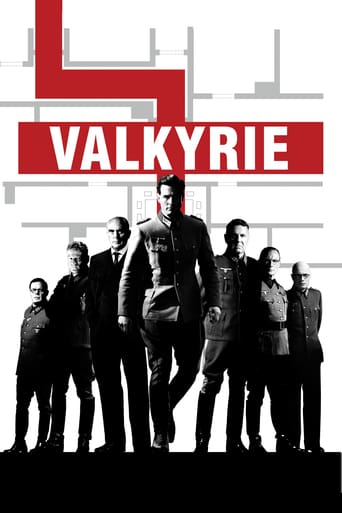
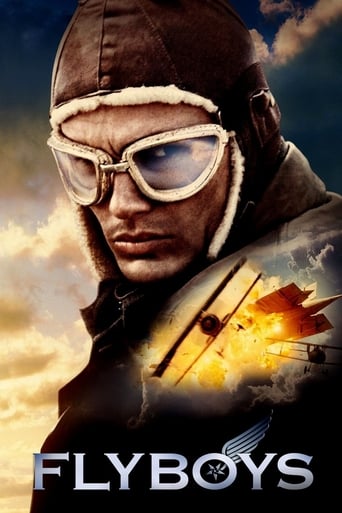
Reviews
Really Surprised!
Bad Acting and worse Bad Screenplay
Absolutely Fantastic
Entertaining from beginning to end, it maintains the spirit of the franchise while establishing it's own seal with a fun cast
The focus of "The Trench" obviously is on the human aspects of the British men who have gone to war in World War I. It does a good job of portraying the British soldiers with their emotions, thoughts and trepidations about their circumstances in the trenches of northern France. But it also seems to distort some of the human trappings and demeanors of the time. When movies impose modern mores and culture on the past, they distort that time and its culture and history. Thus, people who don't study such things or have knowledge of the times wind up with an inaccurate notion of history or of the reality of that time. Two things seem obvious as cultural distortions in this film. The first is the casual, almost disrespectful attitude and unruliness of the soldiers. This isn't something that happens just once or twice, but frequently. While all military throughout history likely has had some humor and playful banter among troops at times, it seems to be more of the rule among this platoon of Brits. The second is in the language. Again, all military throughout history likely has had some use of foul or rough language. But here, it seems that this 1916 platoon of British soldiers has adopted early 21st century British street talk (is it really that vulgar among society in England today?). And, I doubt that the British may always have had more vulgar mouths than we Yanks. But, by the standard of this film, the Brits make the service times of my family, from WW II through Vietnam, seem like baby talk. There may be any number of other distortions as well. Anthony Strachan, who plays Horace Beckwith, is very good in his role. But I doubt that a man so much over weight would have been conscripted or allowed to join the British Army then, or any time. I knew some men a little over weight at my boot camp, but they were whipped into shape by the end, usually with much less weight to carry around. The men in this film seemed almost constantly to be smoking cigarettes. Cigarette smoking grew immensely during WW I, but it wasn't yet to the point shown in this film among British soldiers. In a long documentary film of WWI that came with the DVD of this movie, I didn't see a single scene of men smoking cigarettes on the French, British and German lines. But, several scenes showed Allied soldiers in the trenches smoking pipes. The last couple of gross inaccuracies are in the setting. The movie folks did a credible job building the set of trenches – except for one thing. Where is the water and mud? The Allied trenches of WWI were notorious for their foul water and mud, yet we don't see any of that here. And, the scene of the battlefield that the Brits have to charge onto is a lush green meadow. That was almost laughable. Both sides had been bombarding that area for days on end. The land was a desolate wasteland. The distorted portrayal of the conditions and culture are significant enough to cost this film two stars, so I can rate it no higher than six stars. I base that mostly on the fine performances of the cast – all the actors. The setting of this film was in the days leading up to the first day of the British attack in the Battle of the Somme (July 1 to November 18, 1916). That first day – when this film ends – cost more than 60,000 British soldiers wounded or killed. It's considered the bloodiest slaughter in the history of the British Army. I mentioned a bonus documentary that came on the DVD with this film. "World War I: On the Western Front" is an excellent lengthy documentary of WWI. It is a CBS News documentary that shows only actual battle film of the French, British and German forces. It is narrated by actor Robert Ryan. That documentary is centered around the Battle of Verdun which cost more than 500,000 lives. It shows scenes all along the Western Front. Men are standing in deep water in the trenches. Men and machines try to move over drenched and muddy roads and fields. And, battlefields between the lines are a no-man's wasteland. Not a blade of grass, flower or tree can be seen. None of that was staged by Hollywood, but Hollywood (in the U.S. and abroad) would do well to study such actual war films to better and more accurately portray scenes in war movies.
Most importantly, I thought it depicted the spirit of the times rather well. Otherwise, a good picture but by all means not a masterpiece. It lacked above all in deeper characterization, we don't really care very much about the various soldiers, mainly because we don't get to know them well enough, thus we are not disturbed when they are hit or they die.Some criticized the cinematography which I thought was adequate to depict the squalor of the trenches, but I must admit the sound could have been improved upon greatly. I did not think Daniel Craig gave a great performance like some say. I found it to be professional, but nothing more than that. All in all an average movie, or slightly above that.
My father served in both World Wars and I never heard him swear. If his meal was not on the table on time, he might say "Confound it..." or, if he hit an unexpected set-back, he might say "Blast". Yet, in his book, "A Long Long Way", Sebastian Barry's main characters, in the trenches in Belgium, swear almost continuously, using all three *bleep* words - f,s & c. He also pointed out that the platoons were made up of soldiers from the same regiments. I never heard my father talk about WW1. He won the MC and his citation refers to his "extreme bravery in the face of enemy fire". I would love to have had a chance to talk with him about the war, but it was never mentioned. He was invalided out with shell-shock and had a piece of shrapnel lodged somewhere - again I was never told the precise location. Such was the tight lip attitude of serving officers who survived the trenches. Surprisingly, after a brief spell in the Civil Service, he re-joined the Army and served in India. Because he spoke fluent French & German, having spent a year at school in, of all places, Belgium, he was recalled sometime later & served on General de Gaulle's staff in London, doing liaison work with the French underground. We moved to Ireland, in 1948, where he spent the rest of his days. Quite recently an old friend of his, Cecil Lidell was mentioned in an article about his brother, Guy Lidell, a spy master.I remember Lidell, whom we called Little Cecil, and I also recall John Betjeman calling. He was interested in church architecture & the three of them use to visit a local Anglican church. William Boyd, possibly the best writer in the English language today, when discussing his latest novel "Restless" posed the question of what one might do if one found out that one's father had been a spy. I can only wonder! Particularly as my parents played bridge with both the Polish & Belgium ambassadors, who were neighbours. (Ireland's PM, Mr. de Valera, was regarded with suspicion by the British, particularly when he signed the Book of Condolences, at the German Embassy in Dublin, when Hitler committed suicide). Lots of local material for a spy? Alas, I shall never know, but I could always try and write a fictional story, just as William Boyd did. Some of the material is there. Such is the stuff of dreams.
Well I for one really enjoyed this film, after all I am British and do have strong feelings of the first World War. This film may not appeal to American viewers, well to be honest they wont understand it as much as a British person would. This is an emotional film and it captures every soldiers pain and suffering. You have to remember that this war was terrible many lives were lost especially on that first day of the Somme, there was little chance of survival.I think that the reason this film doesn't appeal to an American audience is because it does not involve stupid soldiers shooting at helpless soldiers. Yeh friendly fire does play an important role in war.
